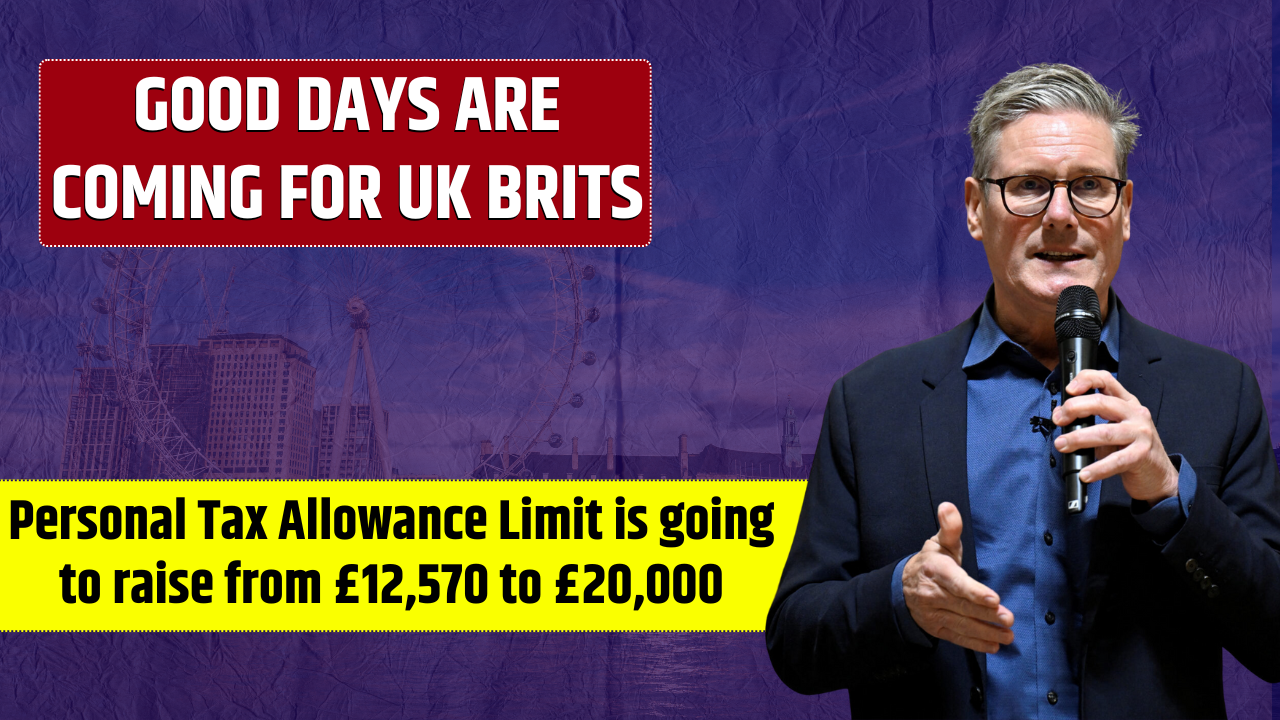A growing movement is calling for a major tax reform in the UK that could significantly impact millions of low earners and pensioners. A petition to raise the income tax personal allowance from £12,570 to £20,000 has gained momentum, surpassing the 100,000-signature threshold required for Parliament to consider it for debate. The proposal, which has already received over 133,000 signatures, highlights widespread frustration with the current tax system, particularly among retirees and low-income households.
What Is the Personal Allowance?
The Personal Allowance is the amount of income an individual can earn before they begin paying income tax. For the 2024/25 tax year, it stands at £12,570—a figure that’s remained frozen since 2021. This freeze, originally enacted by the Conservative government, is expected to last until at least April 2028.
Because the allowance has not increased alongside inflation or wage growth, more people are gradually being pulled into higher tax brackets, reducing real income and increasing the tax burden, especially on those with modest earnings.
The Petition for Change
Initiated by Alan David Frost, the petition argues that raising the Personal Allowance to £20,000 would:
- Lift more low earners out of income tax altogether
- Ease financial pressure on pensioners
- Reduce dependency on state benefits
- Boost consumer spending by increasing disposable income
If enacted, basic-rate taxpayers could see up to £1,486 in annual tax savings. This change would especially benefit pensioners receiving a full new State Pension, which is now just over £11,500 per year, and often pushes them close to or over the current threshold when additional income is considered.
Financial Implications for the Government
While the idea has public support, not everyone is on board. Critics warn that increasing the Personal Allowance would result in a significant loss of government revenue—estimated to be in the billions. With the UK already facing a fiscal deficit, the Treasury would need to either:
- Raise other taxes (such as VAT or income tax rates)
- Cut public spending
- Increase borrowing
A potential rise in the basic income tax rate by at least 3% has been floated as a way to offset the shortfall, though this could be politically contentious.
Political Landscape and Economic Tensions
The freeze on the Personal Allowance has become a political flashpoint. Many feel it’s a stealth tax that disproportionately impacts working-class families and pensioners. Some comments attached to the petition reflect broader dissatisfaction with both the current Labour government and its Conservative predecessor.
There’s a growing sentiment that the tax system penalizes people who’ve contributed to society for decades. Pensioners, in particular, argue they are being unfairly taxed on income they already paid into throughout their working lives.
Comparing Tax Savings at Different Thresholds
| Personal Allowance | Annual Tax-Free Income | Estimated Tax Savings (Basic Rate) |
|---|---|---|
| £12,570 | £12,570 | £0 (current) |
| £15,000 | £15,000 | ~£486 |
| £17,500 | £17,500 | ~£986 |
| £20,000 | £20,000 | ~£1,486 |
Note: These figures are estimates based on a 20% basic income tax rate.
What Happens Next?
Now that the petition has crossed the 100,000-signature threshold, Parliament is obligated to consider it for debate. Whether or not the government chooses to act will depend on wider fiscal conditions and political priorities.
With the UK economy still navigating global pressures—including rising interest rates, potential US tariffs, and a cost-of-living crisis—the debate over how to balance tax fairness with fiscal responsibility is only heating up.
If approved, raising the Personal Allowance to £20,000 could mark one of the most substantial tax reforms in recent UK history. But the path to implementation is fraught with budgetary and political challenges.
As the public waits for an official government response, one thing is clear: the issue has struck a nerve, especially among those who feel left behind by economic policy.
FAQs
What is the UK Personal Allowance for 2024/25?
It is currently £12,570—the same level since 2021, and frozen until at least 2028.
How much would someone save if the Personal Allowance increased to £20,000?
Basic-rate taxpayers could save up to £1,486 annually.
Who benefits most from raising the Personal Allowance?
Low earners and pensioners, especially those on fixed incomes close to or just above the current threshold.
Why hasn’t the allowance increased with inflation?
It was frozen by the previous government to stabilize public finances, but this has led to “fiscal drag,” where more people pay higher taxes over time.
Will this change definitely happen?
No. Parliament will consider it for debate, but there’s no guarantee it will pass or be adopted by the government.






